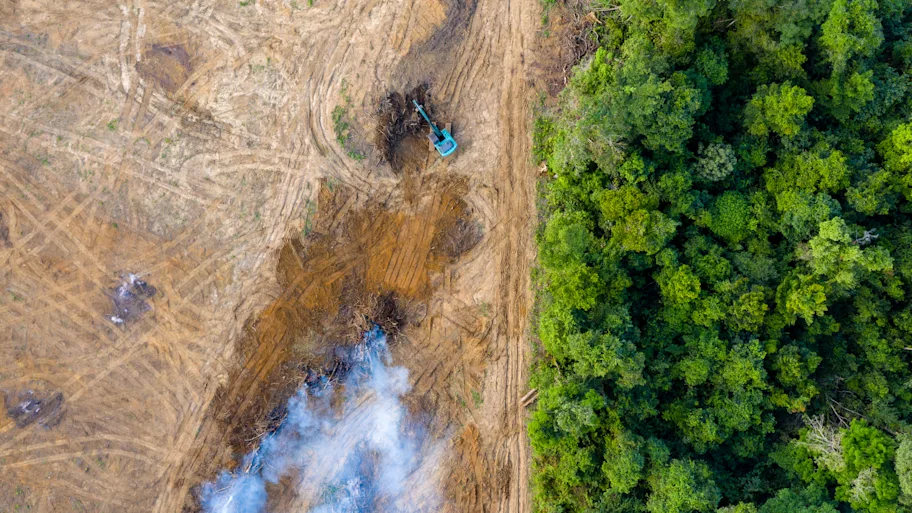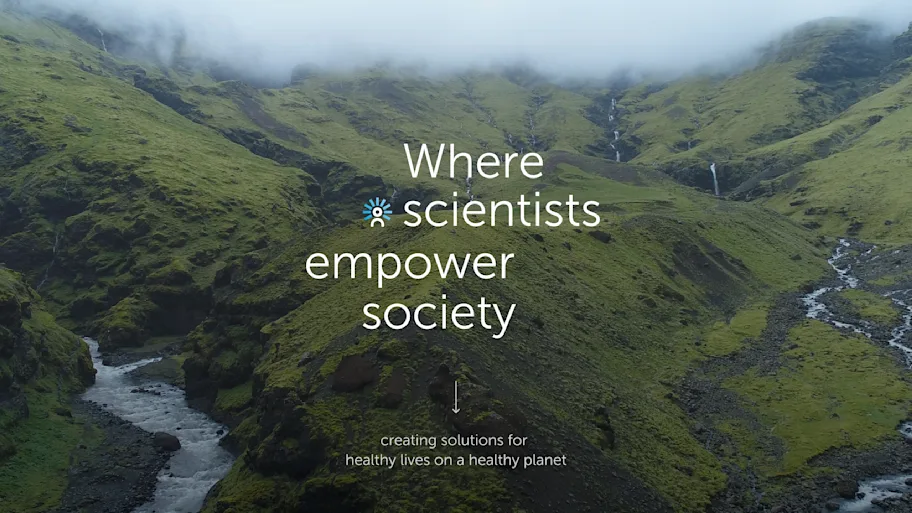
- Science news
- Research Topics
- Can we stay within planetary boundaries? Five Research Topics for a sustainable future
Can we stay within planetary boundaries? Five Research Topics for a sustainable future

Climate change is no longer a distant threat. It's here, disrupting the global chain supply, soaring the likelihood of pandemics, and raising climate risks worldwide.
One powerful tool for understanding this reality is the Planetary Boundaries framework. The resource describes the limits of nine biophysical systems and processes, or "tipping points", that regulate the functioning of life support systems on earth and, ultimately, the stability and resilience of the earth system.
Introduced for the first time in 2009, the framework has been revised throughout the years. Scientists have now shown how we have already crossed six of these boundaries, which increases the risk of drastic and irreversible environmental shifts, according to Stockholm Resilience Center research.
Finding solutions that keep us within these boundaries calls for the power of collective action. Today, we share five Research Topics that explore some of the factors impacting the nine planetary boundaries.
All articles are openly available to view and download.
1 | Water and Carbon Dynamics, Ecosystem Stability of Forest and Grassland in Response to Climate Change
42,000 views | 25 articles
In this Research Topic, scientists study forest, grassland, and climate change. They primarily focus on plant growth, carbon sequestration, evapotranspiration, water use efficiency, and ecosystem stability in response to climate change in arid or semi-arid areas. This topic also highlights the vegetation eco-physiological mechanisms in response to climate change.
Forest and grassland ecosystems are the most important carbon sinks in terrestrial ecosystems. How the two mitigate and adapt to climate change is still a challenge. Exploring their reaction to extreme climate events contributes to improving vegetation quality and enhancing their ability to respond to climate change.
2 | Low Carbon Economy and Health in the Context of Carbon Neutrality
26,000 views | 13 articles
Among other issues, this Research Topic explores the many challenges faced by the low-carbon economy in the development process and how to deal with them. It also looks at which industries impact the development of a low-carbon economy, including energy, transportation, and construction.
The concept of a "low-carbon economy," which is based on low energy consumption and low pollution, has become a global topic of discussion. Simultaneously, the pursuit of the carbon neutrality goal has emphasized the importance of public health. As a result, researchers are examining ways to develop a low-carbon economy while protecting public health.
3 | Biogeochemical Processes of Micro/Trace Elements and Their Impacts on Marine Ecosystems
21,600 views | 14 articles
A Research Topic that focuses on the biogeochemical cycle of micro/trace elements (M/TEs) and their interaction mechanism with marine ecosystems. M/TEs are found in exceedingly low amounts in the ocean, but they are critical to marine ecosystems, the global carbon cycle, and the ocean's overall health.
Over the past decades, the increasing availability of M/TEs and isotopic data has yielded new—and potentially more direct—insights into secular changes in seawater, sediment composition, and the evolution of the marine biosphere. This also reflects that human activity is altering the ocean through climate change, pollutants, and direct exploitation of the marine environment.
4 | Microbial Regulation of Soil Carbon Cycling in Terrestrial Ecosystems
22,300 views | 12 articles
This Research Topic increases our understanding of the role of microorganisms in soil organic carbon storage and mobilization processes. It also improves our capabilities in developing and evaluating cost-effective microbial strategies for carbon sequestration and anthropogenic carbon dioxide (CO2) emissions mitigation.
The soil organic carbon pool is larger than the combined carbon stock in the world's vegetation and the earth's atmosphere. Carbon exchanges between soil and atmosphere are quantitatively relevant to the terrestrial carbon cycle. The efficiencies of these processes are critical determinants of net ecosystem carbon storage, which makes this topic relevant to achieving carbon neutrality and peak CO2 emissions.
5 | Ocean Artificial Upwelling – Ecological Responses and Biogeochemical Impacts
29,100 views | 10 articles
This Research Topic studies the optimization of artificial upwelling and its effectiveness in fertilizing ocean productivity and enhancing energy transfer to higher trophic levels. Researchers also investigate the associated consequences of biogeochemical cycling, including carbon-to-nutrient stoichiometry, export efficiency, and production of climate-relevant gases.
Feeding a growing population and achieving net-zero CO2 emissions by 2050 are major challenges. Terrestrial resources are heavily used, but the vast ocean ecosystems still hold untapped potential. That's why assessing the feasibility, effectiveness, and risks of artificial upwelling is crucial for securing marine food production and mitigating climate change.






